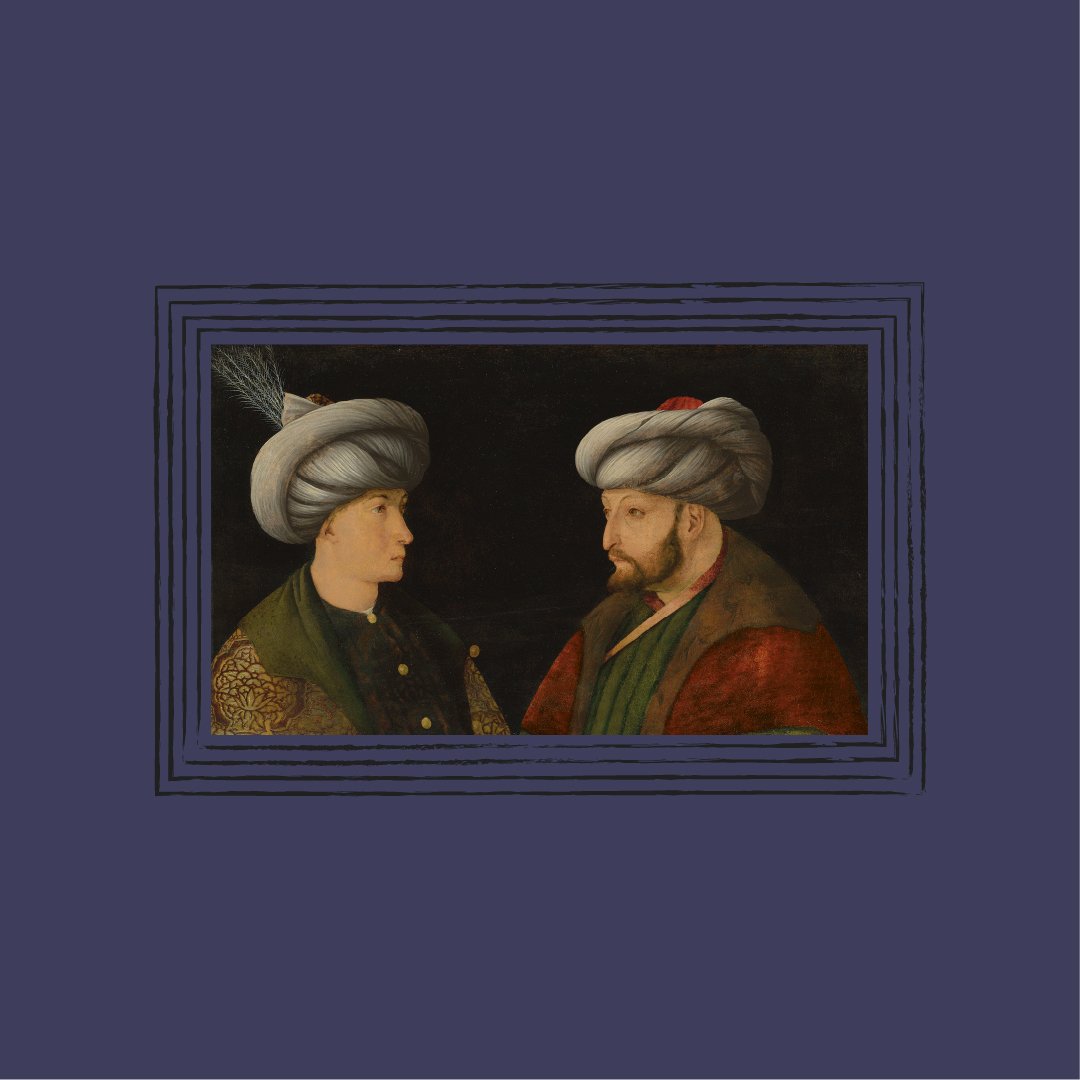Translating “The Case of Cem”
FEBRUARY 29, 2024
The Reporter’s Notebook is our monthly interview series with Dial contributors. To receive these conversations directly in your inbox, sign up for our newsletter.
✺
A conversation with Angela Rodel, whose translation of the 1967 novel was excerpted in our Order issue.
In 2023, translator Angela Rodel shared the Booker Prize with Bulgarian author Georgi Gospodinov for bringing his novel, Time Shelter into English. Based in Sofia, Rodel has played a significant role in the global resurgence of Bulgarian literature. Her latest work, The Case of Cem, is a classic work of Bulgarian fiction, a tale of courtly intrigue, suspicion, and espionage. Originally written by the historian Vera Mutafchieva in 1967, the novel is a formally daring work of historical fiction, laden with double-entendres and metaphors for the present day. An excerpt of the novel was published in The Dial’s Order issue. Rodel spoke with The Dial in Washington, D.C. at the Bulgarian Embassy in early February about her approach to the novel and about how her writing process has evolved. This interview has been edited for clarity.
THE DIAL: The Case of Cem is a novel laden with its own history. Its story takes place almost 500 years ago, when Bulgaria was part of the Ottoman Empire, but is intended to be a contemporary political critique of the Cold War. How do you understand the many stories it contains?
ANGELA RODEL: Vera Mutafchieva, the author, was one of the founders of Ottoman Studies in Bulgaria. Her brother, Boyan, defected from Bulgaria to France in the early 1960s. This book was written in 1967. Many literary critics see The Case of Cem as a way for her to express her grief about a young man exiled from the East to the West. Many defectors became part of a political game that they didn’t necessarily want to be part of. For its time, it’s very radical. She’s making a political critique, even though she’s talking about the past.
THE DIAL: How did you come to translate this particular tale? What is the origin story of this project?
AR: I generally translate contemporary Bulgarian fiction, so I usually work with Bulgarian authors who are still with us. Unfortunately, Vera Mutafchieva died in 2009, I never had the opportunity to meet her. When I first became interested in Bulgarian literature, I asked my husband at the time, “what good Bulgarian novels should I read?” and he thought for a few seconds and said, “The Case of Cem.” Then, serendipitously, two years ago, the publisher, Sandorf Passage, reached out to me to see if I would be interested in translating it. It has been translated into almost every European language except for English — there are four editions in Turkish alone.
THE DIAL: How did you approach working on the book’s unorthodox structure?
AR: The book is structured as a court of history, which is super radical for its time and context. The reader is put in the place of the judge, and all these witnesses are called to talk about how this case unfolded. But you never actually hear from Cem himself — he’s the one witness who pleads the fifth and never speaks directly to the court. This is very deliberate on Vera Mutafchieva’s part – he’s also a metaphor for the Balkans, his mother was a Serbian noblewoman. He’s half Christian, half Muslim, half European, half Turkish. Like the Balkans, which are being tugged back and forth between European and Ottoman powers, he too is left voiceless. It’s really interesting that Mutafchieva as a historian did not feel the need to tell a straight historical narrative. She really wanted it to be an omniscient tale in which you don’t necessarily know who or what to believe.
THE DIAL: It’s also a very humorous novel, with comedic one-liners and exchanges nestled throughout. How did you bring the sense of levity to life in translation?
AR: Apparently Mutafchieva had a very wicked sense of humor in real life. Some of her friends told me about how she would show up at the Bulgarian Academy of Sciences with a bottle of whisky, to talk about history. There are a lot of jokes in the book that are not signposted or footnoted. For example, there is one character, Battista Spinola, who shows up as kind of a hired thug for the Italian noblemen. I was looking to see if he was a real historical person, and it turns out there is a Doge of Genoa with the same name slightly later in time. I thought, okay, this is not a coincidence; I think she is making a subtle jab about politicians. She put these little nuggets in the text for people to discover. She was also a very good psychologist because all the characters have their own motivations.
THE DIAL: Mutafchieva clearly made a choice to tell this as a fictional tale. She writes in the forward, “we know that history claims no favorites.” Do you think there is also a distinct theory of history discernible in this text?
AR: Absolutely. There is a school of thought that claims it was inevitable that Bulgaria and the Balkans, being situated between East and West, would become part of the Ottoman Empire. She plays with the idea of alternate history. She says, actually, no, I want to show that there is agency. That’s why all the depositions are in first person, so the characters can say, this is what I did, and this is why I did it. She wants to drive home the idea that of course geography plays a role, but it’s not fatalistic, it’s not the only thing. Human beings made deliberate decisions that changed the course of history. The Europeans do not come off looking good here.
THE DIAL: How did you go about bringing about Mutafchieva’s prose into English, and can you tell us about some of the literary and stylistic choices you had to make along the way?
AR: Mutafchieva throws you into the Ottoman world — the opening page is just peppered with Turkishisms. While Bulgarian has many Turkish words to this day, she uses some that are not used in contemporary language. For the Bulgarian reader, this creates the sense that the language is foreign but familiar. For me as a translator, I wanted to maintain the sense of being in a different place without it being too off-putting for the English reader. For example, throughout the book, the Ottoman characters never say, “Mehmet the Sultan,” they say, “Mehmet Khan.” And I thought, well, English readers know Genghis Khan. Things like that I did leave in. Other things I tried to gloss — the stealth gloss is the translator’s best friend.
THE DIAL: It’s striking that, while the novel is presented as a series of depositions, at no point in the novel is the reader told what court these depositions are being submitted to, or what the subject of the suit is. There is no verdict in the end. What do you make of that framing?
AR: We are meant to think, as readers, what is the verdict? When she was living, Bulgaria was a colonized place — it wasn’t the Ottomans but the Russians who had taken control. I think she meant for it to be an open verdict, and for every reader to think about the fate of that region, and what decisions had led to the situation such as it was. She herself also had a very complicated history; shortly before her death it came out that she had worked as a collaborator to the socialist-era secret services (as the sister of a defector, she likely did not have much choice in this). Apparently, she was being recruited right around the time this book was written, so it also makes me wonder whether she was considering what the historical verdict about her own actions might be.
THE DIAL: How did translating this work compare with translating Time Shelter?
AR: They were difficult in different ways. Time Shelter was difficult because Georgi is a poet, first and foremost. It doesn’t matter if he’s writing prose, he’s still writing poetry. There is so much word play. But it helped that Georgi is alive and well and lives about ten minutes from me, so I could just call him and go for a coffee whenever I had a question. With Mutafchieva, I did not have access to her, and I felt a very heavy sense of responsibility of being her voice in English. It was interesting to work on them one after the other, because they are both very interested in history and the importance of historical memory — how whoever controls the historical record essentially controls the future.
THE DIAL: How would you say that your approach to translating has evolved over the years? When you first confront a text, how do you set about beginning the work of translation? What is your process like?
AR: I have gained confidence as a translator. Before, I was afraid to deviate from the original, whereas now I allow myself more creative freedom and more latitude to experiment than I did as a younger translator (although of course I still feel a sense of responsibility to the original text!). When I first find a piece I am interested in translating, I really listen for an internal resonance — how should this author’s voice sound in English? When I feel like I have a handle of that, I dive into the messy first draft where I interweave the English into Bulgarian — line by line or paragraph by paragraph — and allow myself to try various solutions. Then, only in later drafts, do I go back and streamline and look at the text only it English to make sure it works without the Bulgarian.
✺ Read an excerpt of the Case of Cem in “Issue 13: Order”
ANGELA RODEL is a literary translator who holds degrees from Yale and UCLA in linguistics and ethnomusicology. Eight Bulgarian novels in her translation have been published in the US and UK. She has received NEA and PEN translation grants, including an NEA grant for her translation of The Case of Cem. Her translation of Georgi Gospodinov’s Physics of Sorrow won the 2016 AATSEEL Prize for Literary Translation, and her translation of his novel Time Shelter won the 2023 International Booker Prize. A two-time Fulbright scholar, she now lives in Sofia, Bulgaria, where she serves as executive director of the Bulgarian-American Fulbright Commission.




